QuestionI have a 12 year old shi-tzu spayed female and a 9 year old male neutured Maltese. They have both been housebroken since they were little, but recently the shi-tzu has been peeing on the only rug we have in the house and the Maltese is peeing on laundry baskets. I love these dogs very much but am at my wits end....they have a dog door that they go in and out of all day long. They do not poop in the house, they only pee and only sometimes. I am 7 months pregnant with our first baby. That is the only thing that is different around here. Could they sense this and be upset? Please help if you can. How do I get these dogs to stop peeing in the house?
AnswerYour dogs (especially your female) absolutely "know" you are pregnant. The dog's sense of smell is enormously greater than ours and hormones produce scent. Elevated estrogen might be the prompt for your Shih Tzu to have begun marking. However, given her age, it might also be combined with some low level confusion (cognitive dysfunction). The male appears to be marking, possibly in response to the female, and it's interesting that he's chosen the laundry baskets (where the scent of soiled clothing might be the trigger.) First, you need to take the female to the veterinarian and report this problem. Her urine needs to be tested and an overall health check done. Second, you need to pick up the secondary trigger: the rug. There is no way you can eradicate the scent of urine to the dogs, even though there are cleaning agents that can remove (most of) the scent to humans. Third, you need to keep the dogs from the laundry area in order to remove the next secondary trigger: the soiled laundry. Whether or not you are aware of it, you may also be behaviorally affected by your pregnancy (just ask your husband!) and this emotional response (totally NORMAL) is obvious to both your dogs. Dogs read body language closely, their own AND YOURS. Any change in behavior or emotions, no matter how subtle, is observed by the dogs in the household. Reinforce appropriate elimination for both dogs; remove secondary triggers; have the female examined by the veterinarian; and sit tight. Additionally, you must attempt to prepare these dogs for the presence of a human infant. Dogs that have not been heavily socialized to babies, toddlers and children in the first year(s) of life may not adjust well. Begin to carry, in their sight, an object that is special to you (stuffed animal, pillow, etc.) Treat it with special attention on and off throughout the day and reward the dogs AFTER you have put the object away. Do this consistently. When the baby is born, have your husband bring home the blanket the baby has been wrapped in (even briefly). Have him offer the blanket for its scent and then have him carry it around much as you have done with your object, making sure to reward the dogs after the blanket has been put away. Continue with this after the baby has arrived at home, only this time the "object" will be the baby, itself. Protect your infant from the dogs and protect the dogs from the infant, especially as s/he begins to crawl, toddle, etc. Don't assume that you can leave dogs and baby alone for even one second. Infants/toddlers/young children behave erratically, smell "oddly" and are unpredictable. Adult dogs can injure a young child without ANY INTENTION TO DO SO, merely by disciplining it much as they might a puppy. Some dogs are fearful of infants. If you see a developing problem, call in a certified applied animal behaviorist, NOT someone on the internet. In person evaluation will be necessary. These dogs have been your companions for a long time and they deserve your continuing commitment.

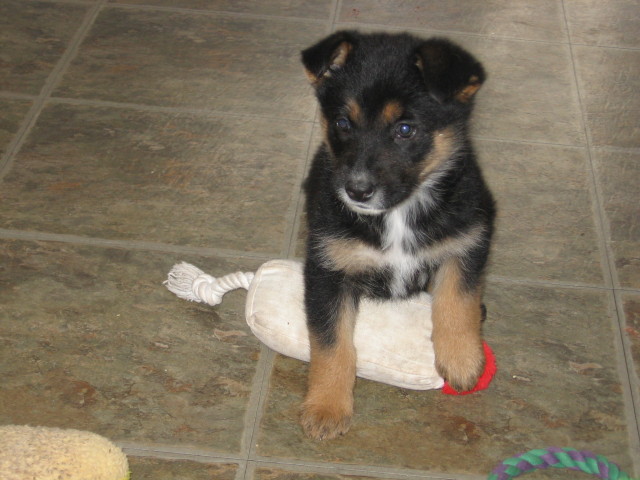 puppy problems
QuestionQUESTION: I am the proud owner of 2 german shep
puppy problems
QuestionQUESTION: I am the proud owner of 2 german shep
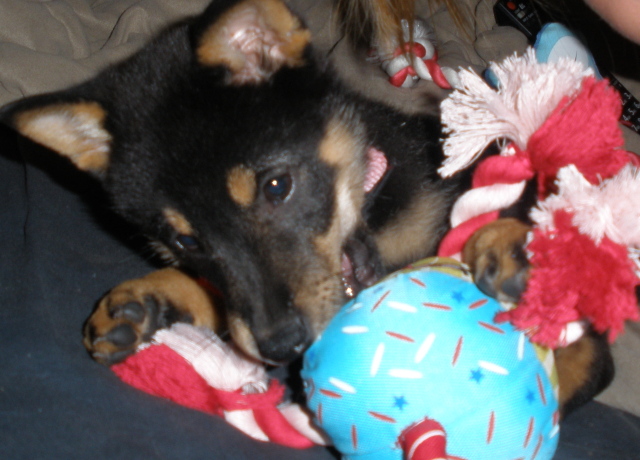 My Shiba Inu
Question
Lola
I bought a registered Shiba Inu puppy fro
My Shiba Inu
Question
Lola
I bought a registered Shiba Inu puppy fro
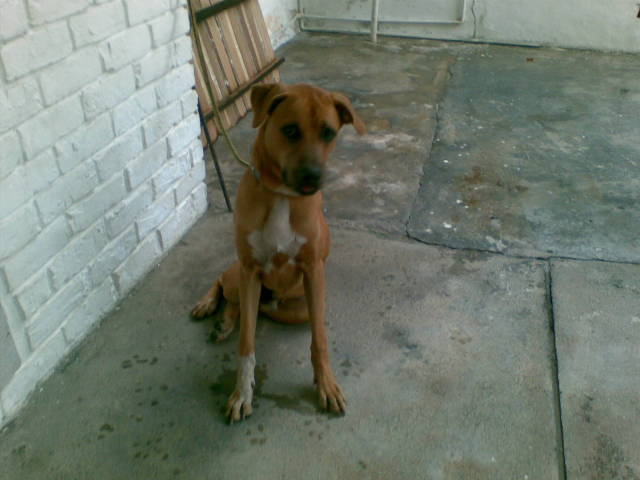 dogs behaviour
QuestionMy 8 months old Dusto
QUESTION: My puppy
dogs behaviour
QuestionMy 8 months old Dusto
QUESTION: My puppy
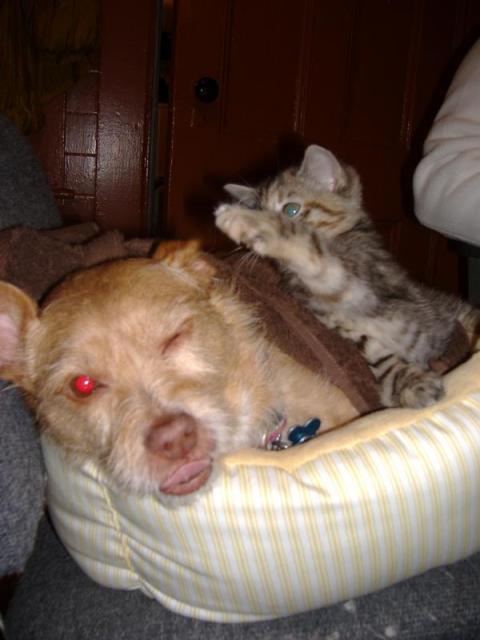 My dog is shaking and hiding under my bed recently
QuestionRorrie and Pencil
QUESTION: My dog, Rorr
My dog is shaking and hiding under my bed recently
QuestionRorrie and Pencil
QUESTION: My dog, Rorr
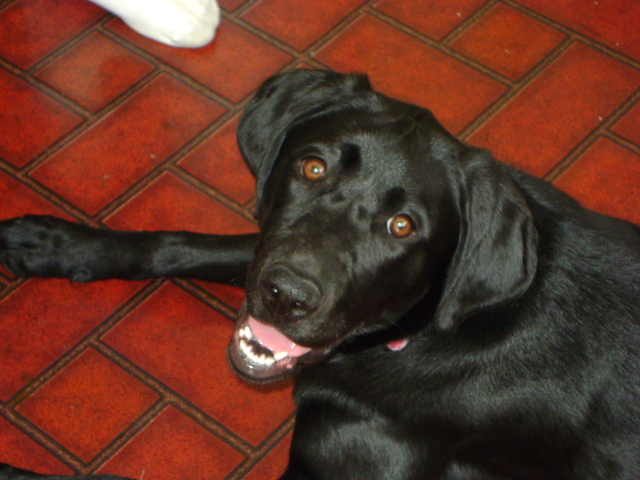 Black lab - 1 yr
QuestionSheba
QUESTION: My lab loves to bite her
Black lab - 1 yr
QuestionSheba
QUESTION: My lab loves to bite her